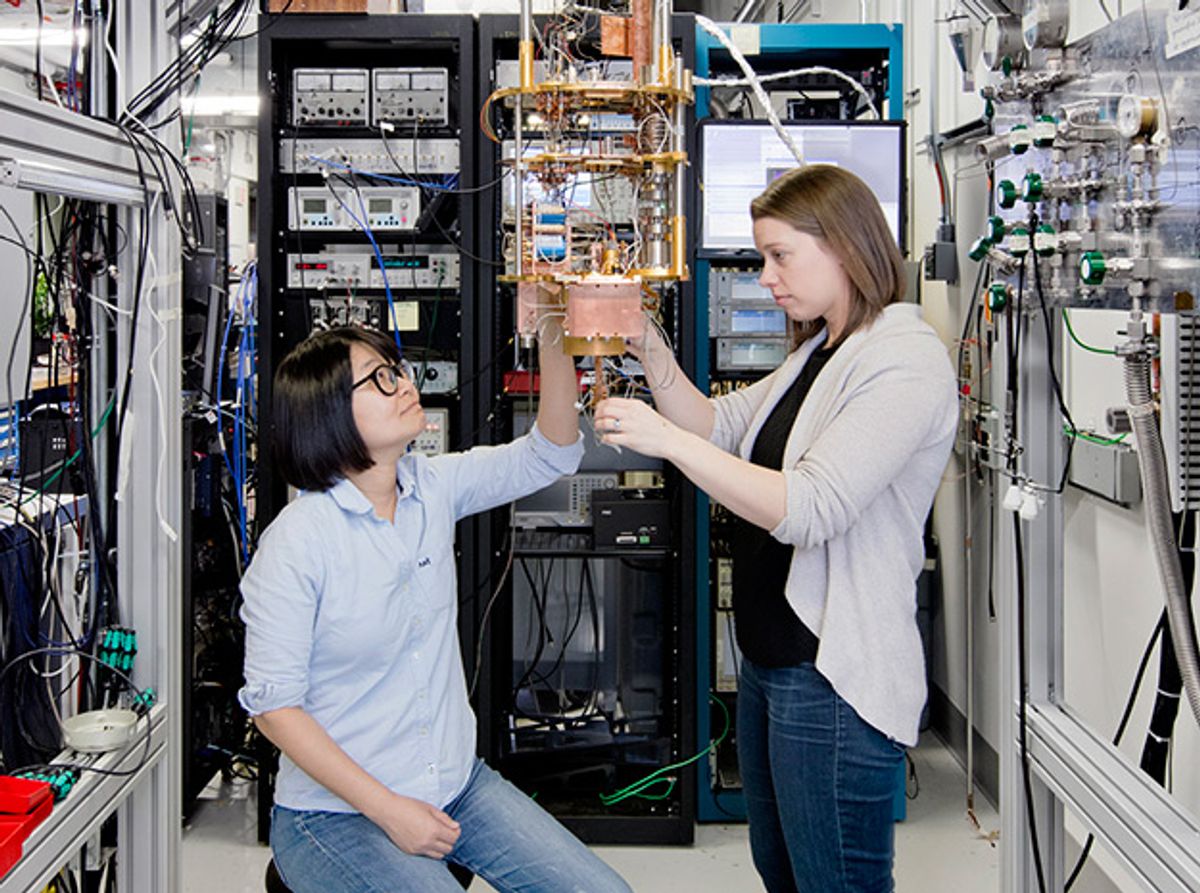IBM is building the first commercially available universal quantum computer, one it aims to have accessible via the cloud within the next five years to explore science and business applications, the company announced today.
Whereas classical computers switch transistors either on or off to represent data as ones and zeroes, quantum computers use quantum bits or "qubits" that, because of the surreal nature of quantum physics, essentially are simultaneously both 1 and 0. This means a qubit can perform multiple calculations at once. So quantum computers can solve certain problems much faster than classical computers.
In principle, a quantum computer with 300 qubits could perform more calculations in an instant than there are atoms in the universe. IBM aims to construct a roughly 50-qubit system based on superconducting circuits. The upcoming quantum computer will be accessible online via IBM's Cloud platform.
According to IBM, one of the first and most promising applications for their universal quantum computer involves predicting the chemical properties of complex molecules. Other applications might include discovering new drugs and materials; optimizing supply chains; finding new ways to model financial data; pinpointing key global risk factors to make better investments; improving artificial intelligence in image and video search; and making cloud computing more secure.

The first commercial quantum computer was developed by D-Wave, but its systems are specialized at solving a particular set of optimization problems. In contrast, IBM aims to build a universal quantum computer, one "that is more general in its capabilities," able to in theory run any quantum algorithm, says Jerry Chow, manager of experimental quantum computing at IBM's Thomas J. Watson Research Center in Yorktown Heights, New York.
IBM previously made a 5-qubit quantum computer available to the public via the IBM Quantum Experience, which is similarly accessible via IBM's cloud platform. Since the launch of the IBM Quantum Experience less than a year ago, the company says that about 40,000 users in more than 100 countries have run more than 275,000 experiments on it.
“By making the Quantum Experience available to everyone, we built up a community interested in quantum computing,” Chow says. “That's ultimately what needs to be done to make quantum computing a more consumable entity.”
IBM also released a new API on Github today that enables developers and programmers to build interfaces for the IBM Quantum Experience's 5-qubit computer. The company also released an upgraded simulator on the IBM Quantum Experience that can model quantum circuits with up to 20 qubits. Moreover, in the first half of 2017, IBM plans to release a full software development kit on the IBM Quantum Experience that will let users build simple quantum applications and software programs.
"We're hoping to develop an ecosystem of people with hands-on experience running algorithms and experiments on a quantum computer," Chow says.
A key metric that IBM aims to have for its upcoming quantum computer is not simply how many qubits it has, but something the company calls “quantum volume,” which includes the number of qubits, the error rate of operations, the stability of the qubits over time, and how connected the qubits are. ‘We don't want to judge a quantum computer on just a single dimension of value, like number of qubits—we want to measure how many operations a quantum computer can perform simultaneously without errors,” Chow says.
Chow notes that IBM's upcoming quantum computer will not incorporate error correction. In order to outcompete classical computers, future quantum computers need to correct for errors that disrupt their fragile qubits. “Full error correction requires a fair bit of overhead,” Chow says. “But we do want to research a number of concepts of error mitigation against certain forms of error over the next few years.”
Charles Q. Choi is a science reporter who contributes regularly to IEEE Spectrum. He has written for Scientific American, The New York Times, Wired, and Science, among others.



